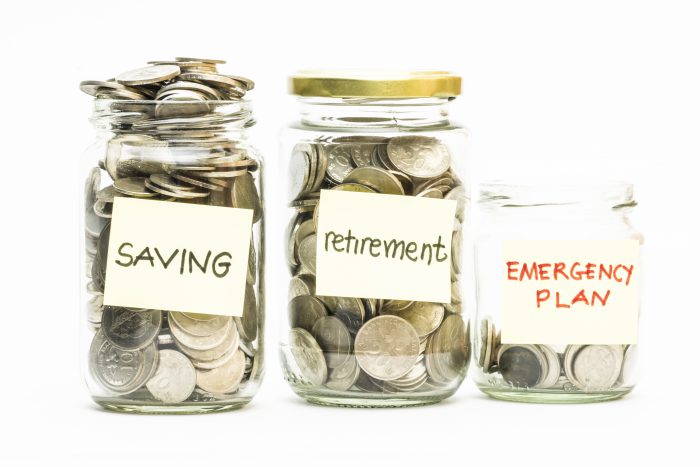The best ways to build an emergency fund

What if you were forced to pay your health insurance out-of-pocket maximum all at once because of an unexpected illness? Could you afford it if your car died and you had to buy another one right away? How would a layoff affect your financial situation?
Creating an emergency fund is one of the most important efforts an individual or family can do, yet often people think they can’t afford to do it or it becomes an afterthought – until it’s actually needed. According to Bankrate.com, 29 percent of Americans have no emergency funds, and only 22 percent had enough to cover six months of expenses.
You’re only compounding your financial problems by making a credit card your top emergency solution. Depending on your annual percentage rate, you could find yourself paying hundreds or thousands of dollars more than what the emergency originally cost.
There are easy ways to ensure you have the financial resources when the unpredictable happens. But how much do you need to sock away? Ideally you should have three to six months of expenses covered, however that’s just a starting point. Assess your situation and spending habits for what you should set aside. It could be three months; it could be a couple years. Keep the money in an account from which you don’t regularly draw funds to keep yourself from spending it on non-emergency items.
At a minimum, have a fund that covers your basic living necessities – mortgage or rent, utilities and groceries. According to the Bureau of Labor Statistics, that amounts to $1,800 a month for the average household. Yours could be lower or higher depending on where you live and the number of people in your household. Build in extra funds if you can for job search expenses or health-related emergencies.
If cash on hand is hard to come by, consider dipping into brokerage investments or utilizing your household equity to establish a line of credit to support your cash savings. Don’t rob from your future, though, and avoid cashing out retirement savings.
Start with the quickest ways to establish an emergency fund:
- Put that tax refund away instead of spending it. The average refund in Ohio in 2014 according to the IRS was $2,466 – an excellent emergency fund starting point.
- The little luxuries can add up quickly. Coffee at Starbucks, eating out, buying brand-name products when perfectly good generics are available. Trim those habits and you’ll find your account begin to grow.
- Pay yourself first. A portion of your paycheck goes to fund health insurance, Social Security, government taxes and more. Earmark a recurring percentage for the emergency fund too and factor that money out of your monthly budget. You can have your bank create an automatic transfer, even as little as $5, out of each paycheck and into your established emergency fund savings. Or you can use a bank’s phone app or online banking to move your money effortlessly between accounts.
- Think about adjusting your needs. Can you live with a cheaper cell phone plan that provides a free phone and has smaller data usage limits? Would you be willing to shop at second-hand clothing stores or garage sales? Can you drop your cable or satellite TV service and use cheaper streaming services? Consider changing your standards and putting the difference into your emergency fund.
- Take a side job. And use it solely to build the emergency fund.
- Sell off what’s in your home. If you haven’t used it in a year, it can probably be more useful in someone else’s home and you can generate some quick cash.
- Instead of buying new or used, consider free. Need something you’ve budgeted for? Ask friends and family first if they have what you’re looking for, it’s in good condition and they no longer want it. Or put a request on sites such as Freecycle.org, where people give away items they no longer want, saving them from the landfill and saving you money.


